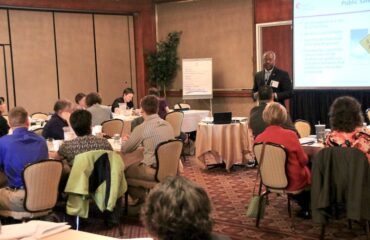A Perspective on the Syrian Refugee Crisis From Istanbul

Under the terms of this treaty, any Syrian refugee who illegally enters the EU would be detained and then transported to Turkey.
I was recently invited by the Turkish Association of Judicial Unity, (YBD) to be an observer at an international symposium on the Syrian refugee crisis. It was arranged in cooperation with the law schools of Istanbul and Ankara Universities, the Raoul Wallenberg Institute of Human Rights and Humanitarian Law, and the Turkish Ministry of Interior.
Turkey and the Syrian Refugees
This symposium was timely in light of the new treaty between the European Union (EU) and Turkey. Under the terms of this treaty, any Syrian refugee who illegally enters the EU would be detained and then transported to Turkey. In return for accepting these refugees, Turkey would receive €6 billion, the elimination of visa requirements for Turkish citizens entering EU countries, and a commitment to an expedited process in response to Turkey’s request to become a member of the EU. The EU also pledged to repatriate qualified refugees into its member countries in a number equal to those transported to Turkey, but has created no mechanism to do so.
Dr. Thomas Gammerloft-Hansen and Non-Entrée Policies
The two-day symposium was impressive both in quality and scope and included many notable speakers. I wish to focus on the presentation of Dr. Thomas Gammerloft-Hansen. Dr. Gammerloft-Hansen, the director of research at the Raoul Wallenberg Institute, discussed the EU/Turkey treaty in terms of what he described as the deterrence paradigm. He defined the deterrence paradigm as governmental stratagems designed to keep refugees from entering a country’s jurisdiction.
He asserted that, Turkey, a country of roughly 30 million people, has taken in approximately 3 million Syrian refugees. Many of these refugees he said are situated in camps along Turkey’s border with Syria. He argued that the €6 billion in the treaty was insufficient to meet the needs of the refugees, particularly with the new influx that would occur as a result of the treaty.
Dr. Gammerloft-Hansen suggested the new treaty was an attempt by the EU to meet the letter of the requirement of “non-refoulement” while at the same time avoiding taking the refugees within the borders of the member countries. Non-refoulement, he explained, is a principle of international law which forbids returning a true victim of persecution to his or her persecutor as contained in Article 33(1) of the 1951 Convention relating to the Status of Refugees and the 1967 Protocol Relating to the Status of Refugees.
He described how earlier modes of the deterrence paradigm in the EU such as visa controls, carrier sanctions and high seas interdiction had failed due to legal challenges in the International Court of Human Rights. He stated the treaty between the EU and Turkey was merely the latest attempt by the EU to create a deterrence mechanism to avoid responsibility for Syrian refugees, a breach of international law.
Dr. Gammerloft-Hansen anticipated that the deterrence paradigm of the new treaty would be the subject of legal challenges. In our conversation after the formal presentation he appeared certain, based on prior international court decisions, that the high court would abrogate the non-entrée provisions of the EU/Turkish treaty.

Dr. Gammerloft-Hansen seemed to believe member countries would accept a court decision rejecting portions of the new treaty
Interestingly, Dr. Gammerloft-Hansen’s presentation to the judges and prosecutors attending the YBD symposium appeared to provoke little if any controversy within the symposium itself. There seemed wide spread acceptance of his views.
Is the U.S. Doing Enough?
As a U.S. observer I was struck by how small a role our country was playing in the current crisis. Part of the reason for this appears to be that the same the deterrence paradigm that exist within the EU also exist inside the United States. Dr. Gammerloft-Hansen as a resident of the EU seemed to believe member countries would accept a high court decision rejecting the non-entrée portions of the new treaty. As an American, I was left to consider what the American reaction would be to an international court decision requiring that more refugees be taken by the United States.
Get more articles like this
in your inbox
Subscribe to our mailing list and get the latest information and updates to your email inbox.
Thank you for subscribing.
Something went wrong.







